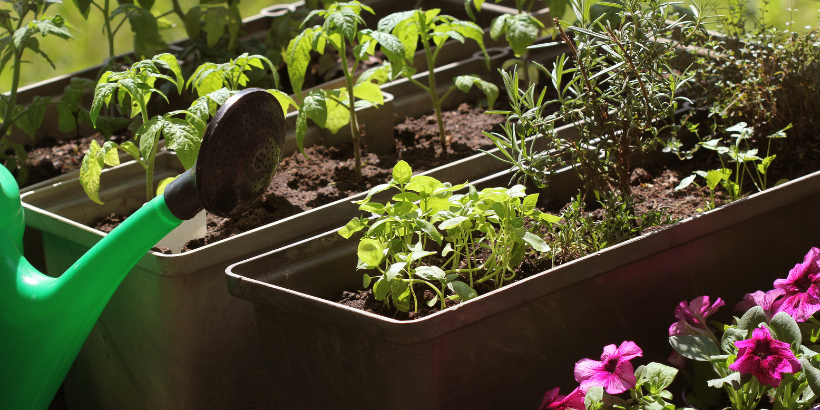Leading Gardening Strategies to Increase Plant Development and Health
Leading Gardening Strategies to Increase Plant Development and Health
Blog Article
Unlocking the Benefits of Gardening: A Detailed Check Out the Different Types and Their Influence on Well-Being
Exploring the multifaceted advantages of horticulture discloses a range of techniques that significantly enhance individual well-being. From veggie and natural herb yards to container and increased bed configurations, each type offers distinct advantages that prolong past plain growing. These activities not only foster physical wellness via active engagement but additionally add to mental wellness by reducing tension and encouraging mindfulness. As we examine these varied gardening methods, it becomes apparent that their impact can resonate on individual, social, and ecological degrees, triggering a closer look at how these links create a cohesive narrative of holistic wellness.
Types of Horticulture

Blossom horticulture, an additional prominent group, highlights the aesthetic charm of grown flowers. This kind can improve landscapes and promote biodiversity by bring in helpful pollinators. Likewise, herb horticulture includes expanding aromatic and cooking plants, adding both to food preparation and natural solutions.
Container gardening deals flexibility, enabling people with limited area to participate in horticulture by using pots and planters. This approach is especially popular in metropolitan setups. Increased bed horticulture, on the other hand, entails creating raised plots that boost soil drain and accessibility, making it easier for garden enthusiasts to manage their plants.
Last but not least, community horticulture fosters partnership among individuals in common areas, promoting social communication and collective responsibility. Each sort of gardening serves distinctive purposes and accommodates different preferences, making horticulture a functional activity that can be tailored to private demands and environments.
Mental Health And Wellness Advantages
Involving in numerous types of gardening not just produces tangible rewards such as fresh produce and beautiful flowers however additionally offers considerable psychological wellness advantages. Research suggests that horticulture can be an effective device for decreasing stress and anxiety, anxiety, and anxiety. The act of often tending to plants and cultivating a yard fosters a feeling of objective and accomplishment, which can enhance general psychological wellness.
Moreover, gardening encourages mindfulness, as it needs people to concentrate on the present minute, whether it be planting seeds or supporting growth. This mindfulness practice can cause decreased rumination and improved mood security. The direct exposure to natural surroundings during horticulture has also been connected to boosted cognitive operating and lowered sensations of fatigue.
Social communication plays a crucial function in psychological health and wellness, and area horticulture efforts offer opportunities for individuals to attach with others, cultivating a feeling of belonging. The shared experience of horticulture can grow friendships and support networks, better strengthening psychological durability.
Physical Wellness Advantages
Several people may not understand that gardening likewise gives substantial physical wellness benefits. Taking part in horticulture activities calls for a range of physical motions, consisting of flexing, training, digging, and growing, which jointly add to better strength, adaptability, and endurance. These actions can boost cardiovascular wellness by promoting an elevated heart price, thereby minimizing the risk of heart illness.
Furthermore, gardening can function as a moderate-intensity workout, helping individuals accomplish recommended exercise levels. Researches indicate that regular Gardening involvement in horticulture can shed substantial calories-- around 200-400 calories per hour, relying on the strength of the tasks executed. Such calorie expense is advantageous for weight monitoring and general metabolic health.
Furthermore, exposure to sunlight throughout gardening can promote the synthesis of vitamin D, which plays a crucial function in maintaining bone health and sustaining immune function. The act of horticulture often includes working with dirt, which has actually been connected to possible psychological and physical health and wellness benefits due to the existence of advantageous bacteria.
Social Links Via Gardening
The public facets of gardening foster purposeful social connections among people. Neighborhood gardens, specifically, work as lively hubs where individuals from diverse backgrounds collaborated, cultivating not only plants yet also relationships. These shared spaces urge partnership, allowing people to exchange expertise, skills, and sources, consequently enhancing their horticulture experience and promoting a feeling of belonging.
Interaction in horticulture activities frequently brings about the formation of friendships and support networks. Individuals often unite for typical objectives, such as growing periods, harvest celebrations, or instructional workshops, which strengthen social ties and produce a feeling of neighborhood. Such interactions can alleviate sensations of isolation and boost mental go health, as individuals discover companionship and friendship in shared ventures.

Environmental Impact of Gardening
Gardening significantly adds to environmental sustainability in several ways. Among one of the most remarkable advantages is the improvement of biodiversity. Home gardens offer crucial environments for numerous types, consisting of pollinators such as and butterflies, which are necessary for ecological community health. By growing diverse plant varieties, garden enthusiasts can produce a balanced setting that supports both vegetation and animals.
:max_bytes(150000):strip_icc()/garden-glossary-potting-getty-0623-ecf762deed2a43bca2a90183cb03da31.jpg)
Moreover, yards play a critical function in water conservation. Tactical landscapes, including native plants and xeriscaping, minimize water usage and prevent drainage, thus protecting neighborhood waterways from air pollution.
Final Thought

Finally, gardening acts as a multifaceted task that boosts well-being across different domain names. The diverse kinds of horticulture-- including veggie, blossom, herb, container, and increased bed-- add to mental and physical health and wellness, foster social links, and promote ecological sustainability. By taking part in gardening methods, people can experience better quality of life while likewise sustaining community read review bonds and ecological health and wellness. Inevitably, the holistic benefits of gardening emphasize its significance as an important aspect in boosting overall well-being.
Report this page